Keeping Your Old Horse Feeling Young
Jessica Jahiel
CONTENTS

Old horses for young riders; young horses for old riders this adage makes perfect sense. If you are looking for your first horse, consider purchasing a mature, sensible, sound, well-trained animal that can become your teacher and friend. Dont hesitate to invest your money, time, and affection in a horse in his teens. If youre willing to make the necessary adjustments to accommodate his care and management, you should be able to continue riding and enjoying your healthy, cheerful, older horse for years to come.
Purchasing an Older Horse
So long as the veterinarian performing the prepurchase examination assures you that the older horse in which youre interested is sound and healthy, you can be a little more generous when evaluating him than you would be if you were evaluating a four-year-old. For example, X rays of an older horse may show lumps, bumps, and arthritic and navicular changes, which may be entirely acceptable for an experienced equine athlete in his teens. In fact, it is virtually impossible to find a horse eight years old or older that doesnt exhibit some arthritic changes. Heed the advice of your veterinarian. If the damage isnt major and the horse is comfortable and able to perform reliably, all should be well.
Patience Comes with Age
Older horses can be wonderful, patient teachers for beginning riders of any age. They may require more careful management as they age, but the benefits of starting with an older horse far outweigh any drawbacks.
Maintaining an Older Horse
Whether you are just beginning to look after an older horse or are continuing to look after a horse that is growing old in your care, you will find that maintaining an older horse generally is a combination of business as usual (shoeing and vaccination schedules, for example) and coping with change. Recognizing and dealing appropriately with the various changes that occur as your horse ages will help you give him a good life well into his golden years.
As horses get older, they chew less efficiently, make less saliva, and digest their food less effectively. Like older humans, older horses are more prone to injury and require more time to heal. They need more deliberate exercise, with generous warm-ups and cool-downs, and perhaps a lighter workload. They also may require special care, feeds, or medications. All of these issues can be well managed by a caring owner you.
Recognizing the Signs of Aging
If you see your horse every day, you may not notice the subtle changes in his condition that take place over many months and years. Stand back and take a long, objective look. It might be helpful to imagine that youre seeing your horse for the first time.

Observe your horse for these signs of advancing age.
The Head
If you study a horses head, typically you will see two distinct signs of age. First, look at the hollows above the eyes. In young horses, these may be no more than slight indentations. In older horses, however, the hollows are deeper and become even more so with age. Second, look at the horses mouth. Young horses have tight, firm, lower lips. As horses age, however, the lips become softer and looser, and the lower lip may begin to sag. The sag in the lower lip is quite pronounced in many horses age twenty years and older.
The Teeth
While youre looking at the horses mouth, take a quick look at his incisors, the grass-cropping teeth in the front. In older horses, the incisors are visibly elongated. If you compare the teeth of an old horse with those of a young horse, you will understand immediately the origin of the expression long in the tooth.A foals incisors are short and almost perpendicular to the jawline. Throughout a horses life, the incisors grow forward, eventually angling out to such an extent that there is little biting surface between the upper and lower incisors.
The front teeth crop the grass or grab the hay, and then the horses twenty-four molars grind the food. Over many years, the constant grinding of hard grain or of grass from sandy areas can wear the molars down to their roots, at which point they simply fall out. Interestingly, a mature horses permanent teethcontinue to erupt from the gum line until the teeth are worn down to their roots or until the horse dies. Your inspection of the horses teeth may not include the molars, but a veterinarian should examine the health of the horses teeth at least twice each year. If you can, look at the back teeth as well. Sharp edges on any tooth can cause your horse pain and difficulty eating.

A.At 2 years old, the permanent central incisors appear, almost perpendicular to the jawline, and no wear is visible. B.At 20 years old, the incisors are elongated and angled to the front. Its not unusual for lower teeth to be worn almost to the gumline. Galvaynes groove, which typically begins to appear at age 10, has extended down the length of the incisor.
The Back
Study the horses body, looking at his back, in particular. Many older horses, especially those with long backs, become somewhat sway-backed with age. Generally, a swayback is easy to recognize: the horses topline, no longer straight or nearly straight, is noticeably concave. But keep in mind that not every older horse develops a swayback.
If it appears that your horses back is straight, look again closely. Has his back dropped? By seven or eight years old, a horse is mature and has a completely developed skeleton. The withers, the last portion of the skeleton to develop fully, do not grow beyond this point. If your horses withers have always sloped gently into his back and now, in his late teens or twenties, he seems to have higher withers and a clear drop off with a more acute angle from withers to back its not because the withers have grown; rather, the back has dropped.
Height and Shape
Study your horses body again. Does he look shorter? He may be. Older horses, especially unfit older horses, can develop additional slope in their pasterns from weakened tendons and ligaments, which support the weight of the body. If your horse has little muscling along the topline of his back and seems to have a potbelly, both may be symptoms of the same problem: a loss of overall fitness and muscle tone.
The Coat
Study your horses coat. If its sleek and smooth in summer and dense and long in winter, thats normal. If you have an older horse and his coat is graying, thats probably normal, too. Even if your horses coat isnt graying, you may discover a few more white hairs in his mane and tail each year, which also is normal. But other changes in your horses coat may not be normal. Consider the following questions:
 Is your horse increasingly slow to shed his winter coat, keeping it long after younger horses have shed theirs?
Is your horse increasingly slow to shed his winter coat, keeping it long after younger horses have shed theirs?
 Is your horses coat rough and dull in winter, summer, or both?
Is your horses coat rough and dull in winter, summer, or both?


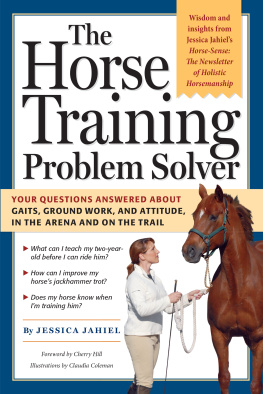

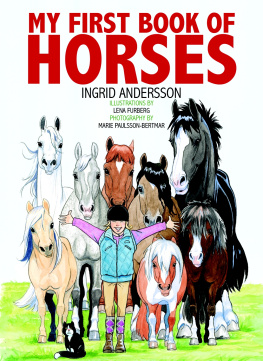
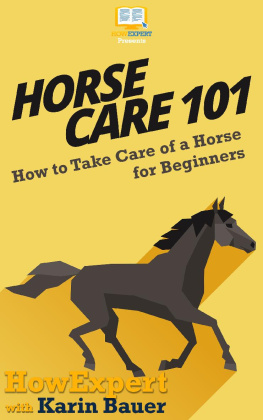
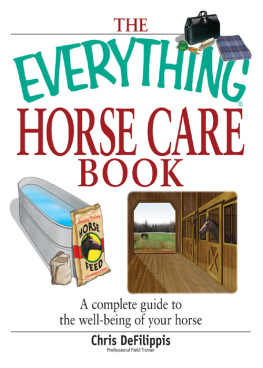
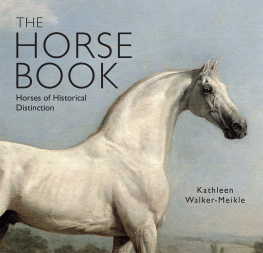
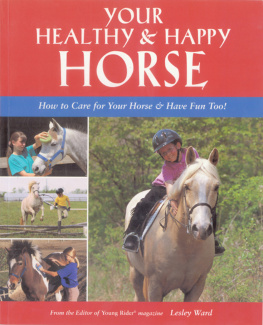



 Is your horse increasingly slow to shed his winter coat, keeping it long after younger horses have shed theirs?
Is your horse increasingly slow to shed his winter coat, keeping it long after younger horses have shed theirs?